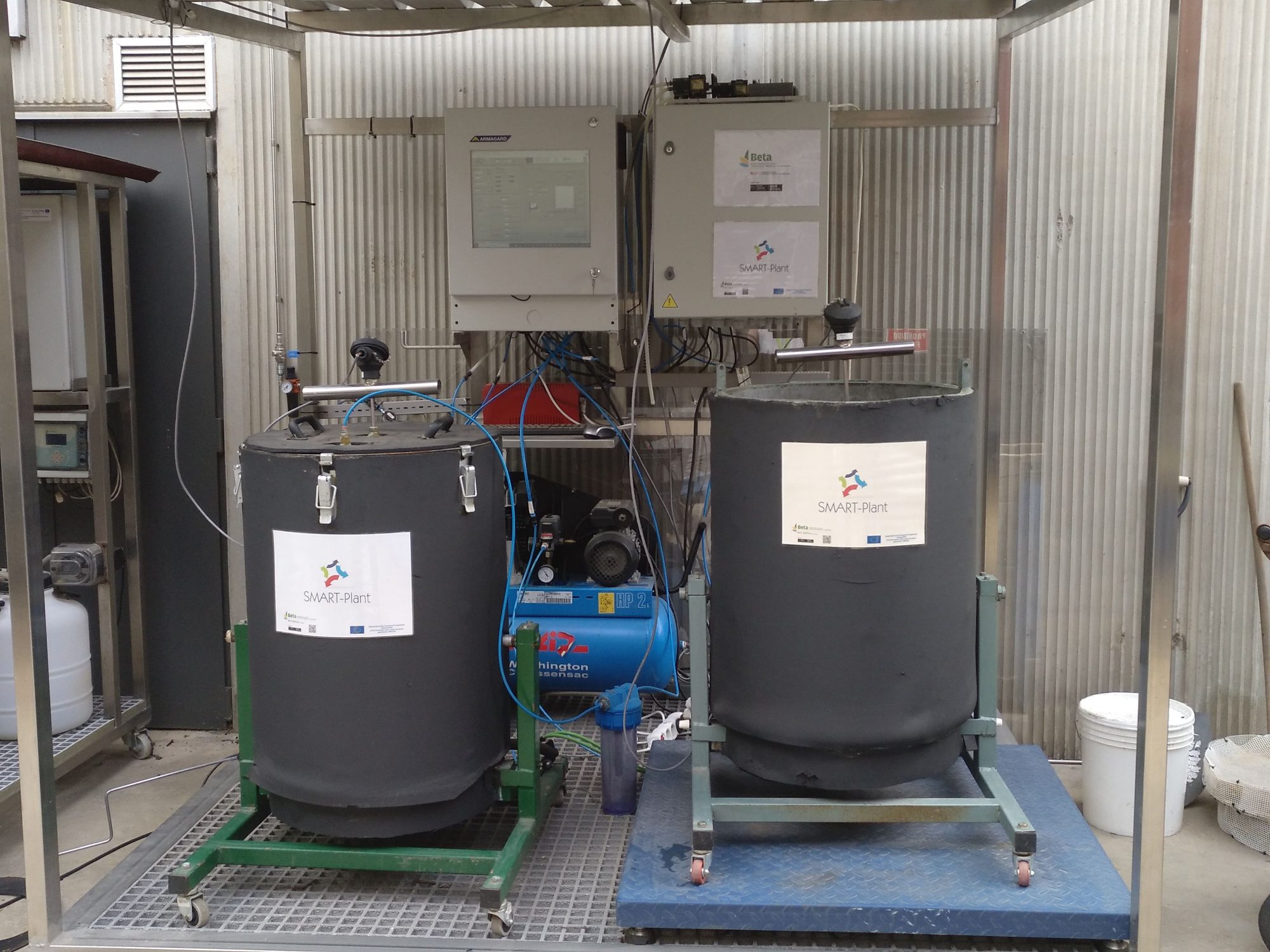CT BETA obtains its first ETV environmental technology verification
The technology that has achieved this verification refers to advanced dynamic composting and bio-drying.

After a long period of evaluation, the BETA Technology Centre of the University of Vic – Central University of Catalonia (UVic-UCC) has obtained the first Environmental Technology Verification (ETV), an accreditation from the European Commission that certifies the performance of innovative environmental technologies. The technology developed at the BETA TC that has achieved this verification refers to advanced dynamic composting and bio-drying, which has also been optimised and demonstrated thanks to the pilot plant that the Smart-Plant project allowed to install at the Manresa Wastewater Treatment Plant. This project, funded by the H2020 programme, is one of the first European projects in which BETA TC participated.
The set of processes proposed combine two different technologies in the same unit, with the aim of maximising the recovery of resources from sludge produced during the water treatment process. The main technological innovation of the pilot plant developed in the Smart-Plant project is based on the advanced aeration control systems developed for each technology.
How can sewage sludge be used?
The management of sewage sludge is complex, because it is a waste that is generated in large volumes and can affect the environment if it is not managed properly. In Catalonia alone, wastewater treatment plants generate around 500,000 tonnes of sludge, and its recovery in agriculture is the main way to make use of it. However, the problem is that this sludge has a considerable volume and weight, which makes it difficult to transport, and also requires costly and technologically advanced management to comply with environmental regulations.
Overall, the process of advanced dynamic composting and bio-drying allows two main types of bio-products to be obtained from the different sludges that can be generated in a sewage treatment plant: bio-based fertilisers and biofuels. On the one hand, advanced composting makes it possible to mineralise organic matter and produce a biologically stable organic fertiliser from phosphorus-rich sludge, with the potential to replace other conventional fertilisers. On the other hand, in bio-drying, cellulosic sludge is dried by the action of biological heat, producing a biomass fuel with a calorific potential equivalent to other non-conventional sources (straw, pruning residues, etc.).
This is one of the thirteen technological solutions that the Smart-Plant project has been testing for four years in water treatment plants across Europe, with the aim of optimising their application under real operating conditions. These technologies should help to step up existing wastewater treatment strategies in order to reduce their carbon footprint and recover high value-added materials that would otherwise be lost.
ETV verifications
There are currently 47 ETV-verified technologies and 123 verification processes underway in the European Union. ETV is a voluntary European programme for third-party verification of environmental technologies, which offers manufacturers and developers of innovative technologies the opportunity to receive verification of the claimed performance of the proposed technology. This European certification helps to increase the credibility of environmental technologies in the marketplace and ensure that they are more widely recognised, both nationally and internationally.
